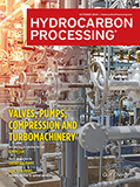Hurricane worries prompt refiner Motiva to shift expansion plans
HOUSTON (Reuters) - Motiva Enterprises has decided not to add processing capacity at its refinery in Port Arthur, Texas, according to a company spokeswoman, fallout from last summer’s Hurricane Harvey that knocked nearly a quarter of all U.S. crude capacity offline.

The decision, which puts Motiva on a path to buy or build another refining plant in the United States, is a significant change in the refiner’s plans from just two months ago when the company’s chief executive, Brian Coffman, said Motiva was weighing adding up to 900,000 barrels per day (
The U.S. refining unit of Saudi Aramco remains committed to “investigating opportunities to return to a refining scale of 1 million to 1.5 million barrels per day, (but) we do not expect to achieve this increased refining scale through the Port Arthur Refinery,” company spokeswoman Angela Goodwin told Reuters.
Goodwin cited “commercial sensitivity” in declining to discuss why the company shifted the expansion from Port Arthur, but people familiar with Motiva’s plans said the decision stems from the Port Arthur Refinery’s shutdown after Harvey flooded the area.
“They’re not going to do it in Port Arthur,” one of the sources said. “They don’t want all of their capacity shut like it was during Harvey. They still want to be making gasoline somewhere else while everyone is shut during a storm.”
Hurricane Harvey last year dropped more than 60 inches (1.5 m) of rain over southeastern Texas, halting refineries that account for a quarter of U.S. production of gasoline, jet fuel and diesel and most of its fuel exports. The storm caused hundreds of millions of dollars in damage to energy infrastructure and pushed up fuel prices for weeks.
Other Gulf Coast refiners, including Exxon Mobil Corp (XOM.N) and Total SA (TOTF.PA), are bolstering their storm defenses, while an industry group is urging federal funding of an offshore
At Exxon’s refinery in Beaumont, Texas, 18 miles (29 km) north of Port Arthur, the company is raising an existing 10-foot flood wall by four feet, said people familiar with its operations.
The company is considering expanding the Beaumont refinery and two others along the Gulf Coast to double its ability to process growing U.S. shale
Refiners and other industries are advocating for a storm surge barrier to prevent future storms from pushing water in nearby Galveston Bay and flood refining centers in Texas City,
“We, along with a broad coalition of our industry peers, have asked federal officials to build a ‘coastal spine,’ a protective barrier,” said Chevalier Gray,
Lyondell’s refinery, which sits on higher ground, remained in operation during Harvey.
Reporting by Erwin Seba; Editing by Nick Zieminski






Comments